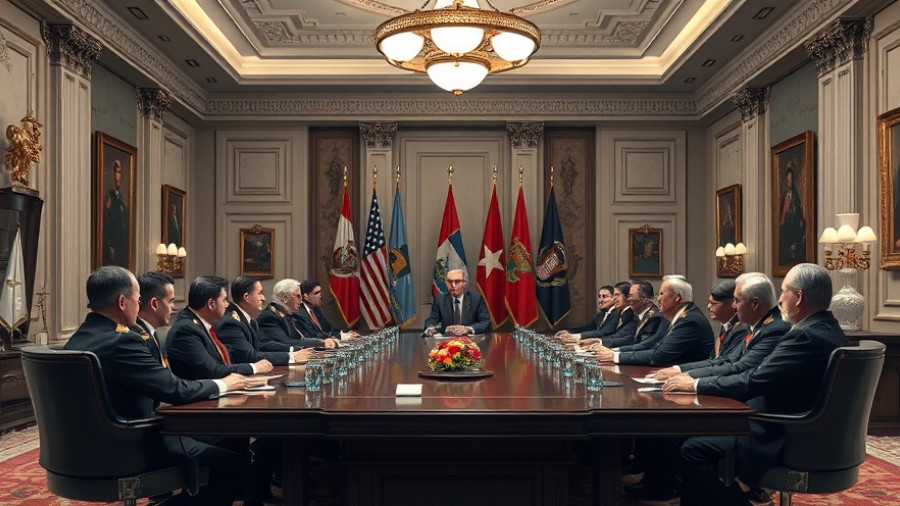
Understanding Trump's Position on the Ukraine Conflict
In a recent meeting with Ukrainian President Volodymyr Zelenskyy, President Donald Trump called for an immediate end to the ongoing war between Ukraine and Russia, urging both countries to "stop where they are." His comments, made during a lengthy discussion at the White House, indicate a significant shift in tone towards the conflict, which has persisted for months and claimed numerous lives. This marks a departure from Trump's prior stances, where he had expressed a more aggressive posture towards Russia and an intent to support Ukraine's reclamation of lost territories.
The Path to Peace: A Ceasefire Proposal
Trump's proposal of halting the war at the current battle lines reflects a pragmatic approach aimed at achieving a ceasefire, as emphasized by Zelenskyy during their discussions. This perspective thrives on the belief that the relentless bloodshed and devastation need to stop, urging both parties to return home to their loved ones, free from further loss. It raises essential questions about the feasibility of lasting peace without territorial concessions and whether the cessation of hostilities offers a legitimate resolution to the conflict.
Public Response: Mixed Reactions to Trump’s Approach
The public's response to Trump's approach has been mixed. Some believe that advocating for a negotiated peace could be a step toward ending the bloodshed, while others fear that any concession to Russia might undermine Ukraine’s sovereignty. The nuances in public sentiment reflect broader concerns surrounding national sovereignty and the importance of maintaining territorial integrity. For many Ukrainians, the idea of conceding land is fraught with emotional and historical complexities, considering the toll the conflict has taken.
The Role of International Influence
Trump's comments also touch upon the broader scope of international relations. As the war drags on, global powers are increasingly intertwined in the situation, impacting not only diplomatic relations but also economic stability. Key players in NATO and the European Union have reiterated their support for Ukraine, complicating Trump's proposition. If Trump were to follow through with his suggestion, how would allies react? This remains an open question, one that speaks to the interconnectedness of global politics.
Looking Ahead: Future Predictions
What does the future hold for Ukraine? While Trump has signaled a desire for peace, the path ahead is fraught with uncertainty. The potential ramifications of his suggestions could lead to a variety of outcomes: from a swift ceasefire to prolonged negotiations, each scenario bears implications for national security and stability in the region. Monitoring developments over the coming weeks will be crucial as both countries consider their next moves in this complex battlefield.
Conclusion: The Importance of Dialogue
In conclusion, as the Ukraine conflict enters another challenging week, the emphasis on dialogue, ceasefire proposals, and potential peace negotiations remains essential. The ramifications of Trump's recent statements will undoubtedly continue to unfold, provoking conversations about the nature of conflict, leadership, and the value of human life in the face of war. To stay informed and engaged in these current events, consider exploring more about how these developments may reshape geopolitical landscapes.
 Add Row
Add Row  Add
Add 




Write A Comment